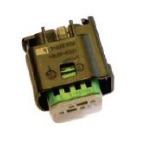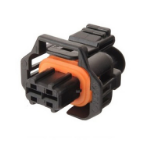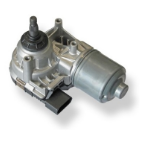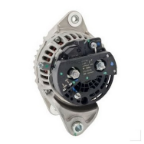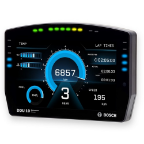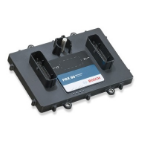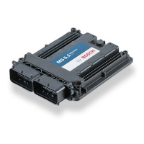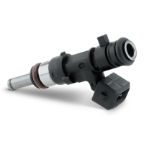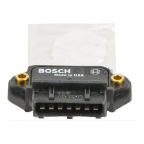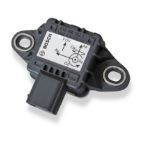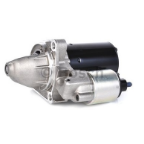Selecting the Correct Fuel Pump for your Modified or Race Car
30 May 2023 Bosch Motorsport Australia
Choosing the right fuel pump for your project is an important decision, and can be a daunting one if you aren't up to speed on how fuel pumps work and why different options exist.
In this article we will explain the main factors that will determine which fuel pump is correct for your application and dispel some of the common misconceptions about fuel pumps for your vehicle.
The topics we will cover include:
1. Fuel types
2. Correct flow sizing and the impacts of under or over-sizing a fuel pump
3. Mounting considerations
4. Electrical system considerations
5. Durability
6. Fuel system accessories
1. Fuel Types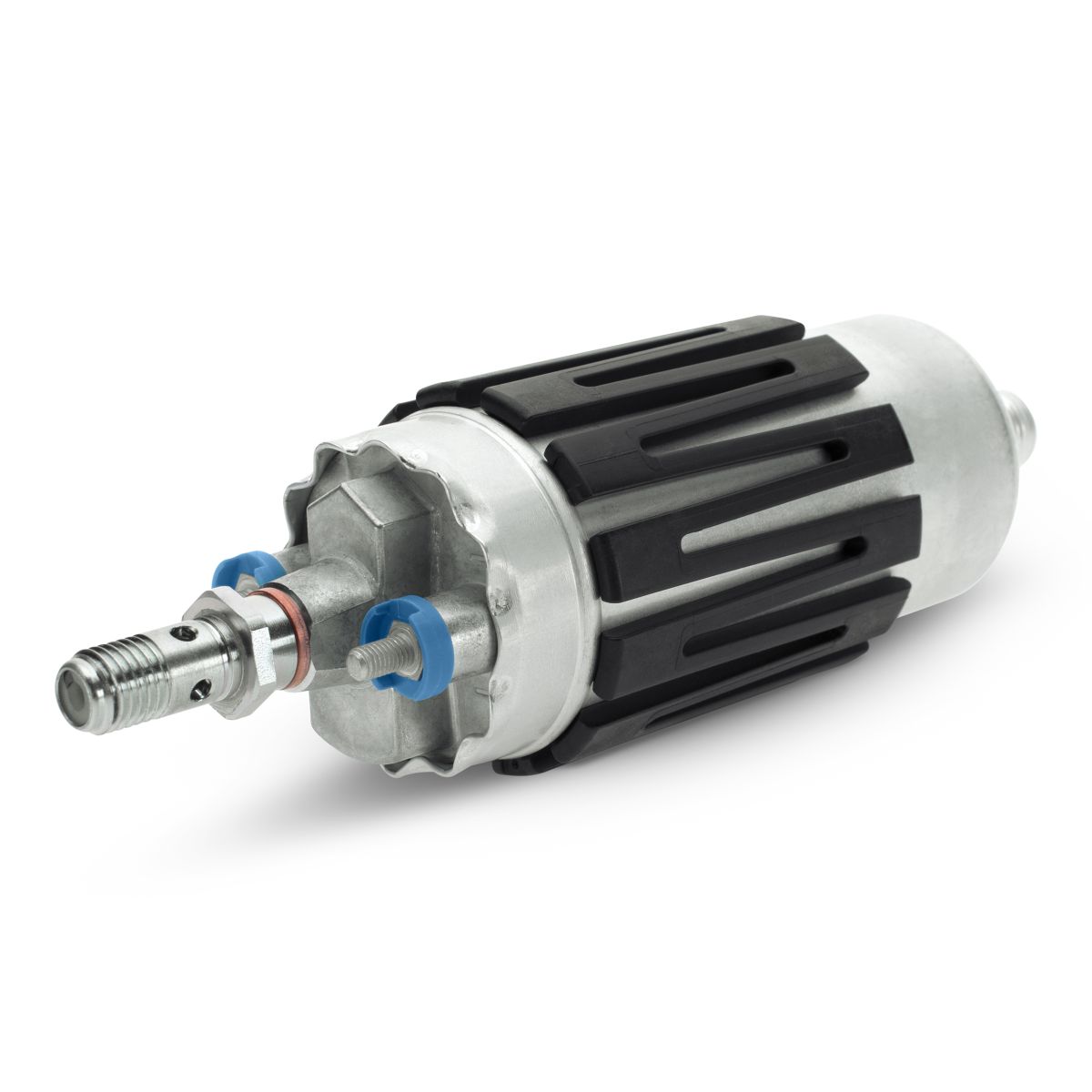
The use of E85 fuel has risen in popularity in recent years due to increased availability and related product development from car manufacturers and the aftermarket. With the appropriate tuning, E85 fuel can enable increased power output via ignition advance and/or boost levels due to its knock-inhibiting properties.
Sounds great, right? Well, there are two things to be aware of when you are choosing a fuel pump for use with E85 fuel.
Firstly, chemical compatibility. E85 fuel is a blend of 85% Ethanol (hence the name) with 15% gasoline and other additives. Ethanol has a corrosive and destructive effect on many materials found within a vehicle's fuel system if that vehicle was not designed for ethanol-based fuels from the outset. Thus, if you want to run your car on E85 fuel, even infrequently, you must ensure your fuel pump has been specifically designed to operate with E85. A non-E85 compatible pump may work initially but as the ethanol eats away at the pump's internals it will reduce in flow and eventually fail completely.
When you see a Bosch Motorsport released E85-compatible fuel pump, you can be confident that thousands of hours of testing have confirmed the durability of the pump with ethanol fuel.
The second consideration when selecting a fuel pump for E85 usage is fuel volume flow. A litre of E85 has a lower energy content than a litre of gasoline and thus requires 30-40% more fuel to generate the same power output. This means you must select a pump or pumps with a corresponding higher flow rate to ensure you can supply the fuel volume required, especially at higher RPM. Failing to do so can result in limited peak power and/or engine damage.
This article doesn't cover diesel fuel - keep an eye out for an upcoming guide specific to diesel vehicles. Methanol fuels are extremely corrosive and require specialised equipment, which is beyond the scope of this article.
2. Correct Flow Sizing
When people discuss the 'size' of a fuel pump, they are mostly likely referring to the pump's flow rate rather than its dimensions (we'll cover physical sizing in the Fuel Pump Mounting Considerations section). High power levels necessitating a 'bigger' (higher flow) fuel pump is the primary reason people change their fuel pump, but is bigger always best? Let’s take a look.
Simply put, an internal combustion engine's job is to explosively release the chemical potential energy from the mixture of fuel and air and convert it into power. Assuming a consistently efficient engine, it follows that more power will require more fuel, and at a certain point a vehicle's standard fuel pump will no longer keep up with the demands of a significantly more powerful engine.
Some pumps will be advertised as '500hp' or '800hp' pumps, but that is a simplification of the relationship between pump and power. Many factors can impact the engine power level a pump can support - fuel type, boost level, engine efficiency and even voltage supply.
If you want a quick answer for your specific system - use our calculator (coming soon). If you're interested in understanding the concept further, read on.
A pump's fuel supply is a relationship between two factors - fuel pressure and fuel volume.
- Fuel Pressure is measured in Bar, kPa (metric) or PSI (imperial).
- Fuel Volume flow is measured in litres-per-hour (LPH, metric) or gallons-per-hour (GPH, imperial)
To understand this concept, it's easy to think of your garden hose: with the tap turned fully on and no nozzle attached, your flow will be high volume but low pressure. Squeeze the hose-end and you will have decreased volume but increased pressure due to the introduced restriction.
Various restrictive elements will determine fuel pressure in conjunction with your pump, including fuel line dimensions, pressure regulator, in-line filter, and fuel return. Since the actual fuel amount injected is primarily determined by the injector opening interval, the factory or your builder/tuner will select a target base fuel pressure to work best with the injectors considering the overall fuel system. Modern race cars measure fuel pressure with a sensor like Bosch Motorsport's combined 10 bar fluid pressure/temp sensor and regulate it with an accurate and high quality fuel pressure regulator.
All Bosch pumps have data sheets which map their fuel volume flow rates at various pressures to take the guesswork out of pump sizing. Most commonly these are 3 bar, 4 bar and 5 bar (43.5psi, 58psi, 72.5psi respectively), however some go as high as 8 bar (116psi).
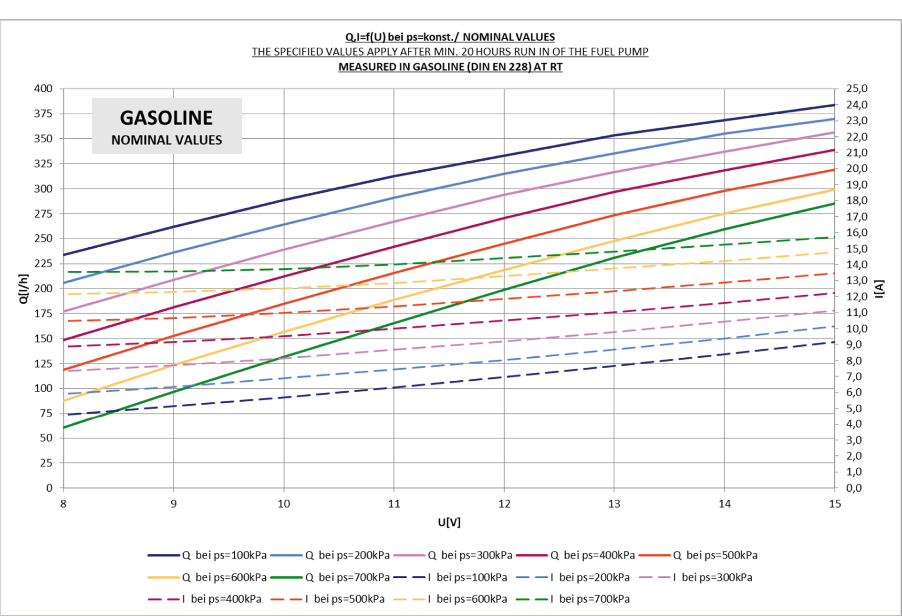 This fuel pressure will determine the fuel volume flow any given pump is able to deliver. Simply put, the higher the system pressure is, the lower the volume of fuel delivered will be. Bosch Motorsport specialises in larger, high-flow fuel pumps which can deliver significant volumes of fuel even at high pressures.
This fuel pressure will determine the fuel volume flow any given pump is able to deliver. Simply put, the higher the system pressure is, the lower the volume of fuel delivered will be. Bosch Motorsport specialises in larger, high-flow fuel pumps which can deliver significant volumes of fuel even at high pressures.
For example, the BR540 will flow 380lph at 5.5bar and 420lph at 4bar. If you have a 5.5bar fuel pressure, that 380lph can mathematically support up to 442rwkw (593rwhp) in a turbocharged E85 engine, but at a lower 4bar pressure the 420lph can support approx. 488 rwkw (655 rwhp).
High power vehicles or those otherwise running high boost and/or ethanol fuels may find themselves in a situation where even the largest pump won't supply the necessary amount of fuel - that means you’ll be looking at a dual- or multi-pump setup.
Pump oversizing?
.png) It is a common misconception that oversizing a fuel pump for the application is always a good thing. It's true that a pump that is at close to 100% flow capacity on the dyno might find itself running out of capacity in the real world due to varied environmental conditions or age/wear. Over-sizing your fuel pump is a good way to ensure that you never encounter a situation where your pump is not supplying enough fuel and potentially leaning out your engine (leading to reduced performance or engine damage). However, we have encountered many systems that are far larger than the required safety margin, and grossly over-sized pumps can create problems of their own:
It is a common misconception that oversizing a fuel pump for the application is always a good thing. It's true that a pump that is at close to 100% flow capacity on the dyno might find itself running out of capacity in the real world due to varied environmental conditions or age/wear. Over-sizing your fuel pump is a good way to ensure that you never encounter a situation where your pump is not supplying enough fuel and potentially leaning out your engine (leading to reduced performance or engine damage). However, we have encountered many systems that are far larger than the required safety margin, and grossly over-sized pumps can create problems of their own:
- Fuel overheating: in a fuel system with a return, excessive fuel flow not injected into the engine will pass through the hot fuel rail and heat up before returning to the fuel tank. The recirculation of hot fuel is a problem for a number of reasons (degradation of octane, hotter intake charge, and decreased density), all of which will lead to power loss. It will also create excessive emissions.
- Fuel overpressure: in a system without adequate pressure regulator capacity, system fuel pressure may be too high. This may lead to excessive fuel being injected and a rich-running engine with poor performance. You may also risk burst fuel lines and connections.
The optimal fuel pump is one that flows only a small amount more than maximum fuel flow demand. Thus, Bosch Motorsport recommends a 10% margin of safety over your calculated maximum fuel flow demand.
3. Fuel Pump Mounting Considerations
"In-tank or in-line?"
An external (or in-line) fuel pump was once the default choice for any high-performance vehicle, but recently the popularity of high-flow in-tank fuel pumps like the Bosch Motorsport BR540 has grown significantly, meaning car builders now have a choice between the two options. Why the popularity of in-tank pumps? Using an in-tank pump keeps many pieces of hardware - pump included - inside the tank which has the effect of dampening the noise of the pump and limiting any leaks or fumes which may escape into the cabin or atmosphere, not to mention saving space in the cabin, boot, underfloor etc.
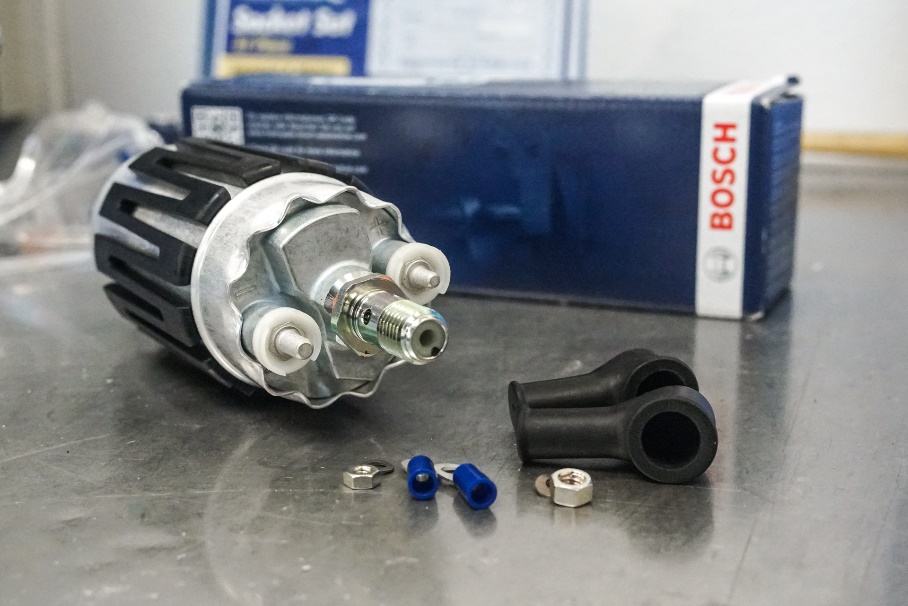 In-line pumps are still a popular choice for some vehicles:
In-line pumps are still a popular choice for some vehicles:
- those that were fitted with in-line pumps from factory
- those converted to EFI from carburettor
- those that require multiple pumps to support extremely high fuel requirements and lack the required space inside the fuel tank
Bosch Motorsport is synonymous with 'high flow external fuel pump' thanks to the ubiquitous '044' fuel pump, which has been often imitated but never matched, except for Bosch Motorsport's own successor to the 044 - the 200 fuel pump.
Mounting
Bosch Motorsport offers a wide range of different diameter fuel pumps to fit a range of popular factory and aftermarket brackets. For example, the 225l/h @4bar In-tank Fuel Pump (0 580 454 100) has a compact 38mm body diameter which makes it a drop-in fit to most Japanese cars from 1990-onwards. Meanwhile the higher flow BR540 measures in at 46mm which fits Radium and many other aftermarket fuel pump hangers. Many of our in-line pumps are supplied with a mounting sleeve which not only makes for a snug fit for popular bracket sizes, but also helps to dampen vibrations.
That brings us to the next point - vibration dampening. The biggest killer of fuel pumps in race cars is not spoiled fuel or debris, but vibration! Hard-mounting a fuel pump to the chassis means that every bump, shake and pulse is transmitted directly to the fuel pump’s precision internals. By simply installing a vibration dampening mount (e.g. a rubber sleeve) you can ensure your fuel pump lives a long and happy life even under extreme race conditions.
4. Electrical System Considerations
Fuel pumps are one of the hardest-working electrical devices in a car, and thus consume a significant amount of electrical power. If you are upgrading a factory pump to something higher flow, it is important to ensure that your electrical system can handle the extra draw of additional pumps. Bosch Motorsport fuel pumps have data sheets listing the voltage and amperage draw for each of its pumps at the various flow rates, so you can identify if any areas of your electrical system (pump power wiring, relays, battery and alternator) are up to the task.
A high flow pump without sufficient gauge wiring may overheat and melt wires and connectors, and reduce the voltage seen at the pump. A battery/alternator combination without the required amperage capacity will also limit the pump's ability to supply maximum fuel volumes. It is important to ensure that any fuel pump upgrade is considered in the wider context of the electrical system.
By measuring the voltage and amperage output of your system and ensuring your wiring and connections are of the correct size and construction, you can understand the expected flow rate of your fuel pump and operate it safely.
PWM Control
With specific equipment and tuning it is possible to use a variable voltage signal to control the output of a fuel pump. Pulse-width modulation (or PWM) control reduces the average voltage seen by the fuel pump by quickly switching the supply voltage on and off at a fast rate. As we’ve already discussed, a lower voltage will reduce the fuel volume flow rate, meaning a pump can (for example) run at 30% capacity at idle, but 100% capacity at full throttle. This can enable the use of a large pump or pumps while limiting the downsides usually associated with oversizing a fuel pump.
5. Durability and Reliability
So you now know what an important role the fuel pump plays in the performance and reliability of your modified or race car. A quality pump is one you never need to think about again after installing – it gives you dependable, consistent performance start after start. A faulty pump can spoil a race weekend and, in some situations, lead to lasting engine damage. There are several brands on the market which claim to manufacture high performance fuel pumps, so what makes Bosch Motorsport Fuel Pumps the best option?
- Bosch has lead the way in fuel injection since bringing the technology to mass market for the first time in 1967 and to Formula One victory by 1983
- Precision engineered, individually spin balanced, polymer-encased armature reduces noise
- OEM-level validation and testing for performance in all conditions, including hot and cold extremes, contaminated fuel, heavy vibration etc.
- Exceptional value due to Bosch’s unmatched in-house manufacturing scale
Example Installs
Standard Power - Blendline Pulsar
The Blend Line TV team races their N15 Nissan Pulsar in APRA racing, which requires standard engines and engine control. They were looking to refresh their fuel pump with something robust and reliable but which could fit the standard tank. Many other competitors would ‘upgrade’ to an oversized pump, assuming that would be appropriate for racing. Since E85, boost or additional power levels were not a consideration, we recommended the BFP038 105l/h @3bar In-tank Fuel Pump which would fit in the standard mounting position and supply enough fuel without the downsides of an oversized pump.
Upgraded Power - Goleby's Parts 1JZ Corolla
Goleby's Parts in Queensland is renowned for their high performance Toyota JZ engines. Owner Kristian Goleby has his 1JZ Corolla as a development platform, putting new parts to the test to ensure quality and performance before recommending them for customer cars. After running twin Bosch Motorsport 044 in-line fuel pumps for four years, it was time for an upgrade when the 044's successor, the '200' Pump, came along. Kristian says the '200' pump's fittings made it an easy drop-in replacement and they found that the pump flows more at higher boost levels compared to the 044. With the new '200' pump installed, Goleby was able to push the car further than before and managed to find an extra 100hp on the dyno, totaling 898hp at the hubs!
Now you know all you need to select the correct fuel pump for your performance goals. Head over to our online store to check out the full range of high performance Bosch Motorsport fuel pumps!

